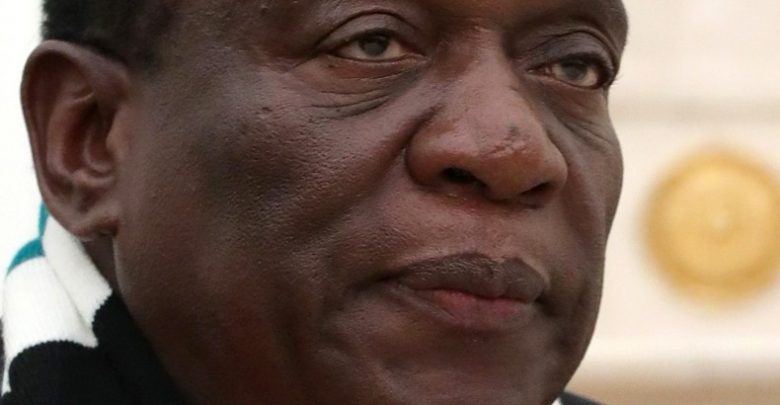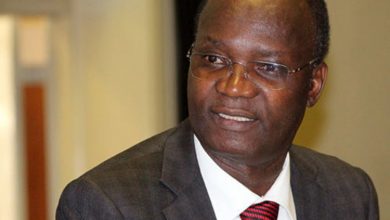‘Patriotic Bill will be used to punish citizens’

The proposed Patriotic Bill by the government should worry citizens because the legislation will more likely be used to ‘severely’ punish them rather than promoting loyalty to the country, analysts have said.
Cabinet recently announced that the Ministry of Justice, Legal and Parliamentary Affairs would soon table the Patriot Bill in Parliament, which seeks to criminalise and impose stiff penalties on citizens who openly criticise the government.
The cabinet also highlighted that its Principles had already been drafted.
When this announcement was made, analysts said it came in the wake of criticism levelled at Emmerson Mnangagwa’s government for cracking down on opposition members, activists and journalists for speaking out about gross human rights violations.
The Media Institute of Southern Africa (MISA) Zimbabwe, said it was “an open secret” that this bill was influenced by the #ZimbabweanLivesMatter campaign that centred on demanding respect for human rights in Zimbabwe.
“The #ZimbabweanLivesMatter campaign received overwhelming support from the region and beyond, and subsequently, resulted in an ANC delegation from South Africa, visiting Zimbabwe and meeting with their Zanu-PF counterparts,” said the media watchdog.
MISA Zimbabwe noted that the proposed law has the potential of curtailing media freedom and freedom of expression, right to privacy, access to information, freedom of conscience, political rights, freedom to demonstrate and petition, and freedom of assembly and association.
“Of equal concern is that this law will potentially cripple the work and mandate of non-governmental organisations that also work with foreign governments, embassies or similar organisations in foreign countries, among others,” the media watchdog said.
Putting in place such a law would severely infringe the right to privacy, argued MISA.
“Any mass and indiscriminate surveillance of citizens is unconstitutional and should not be sanitised through any piece of legislation. Even in the United States where a similar law was enacted, several concerns were raised on its provisions and enforcement,” MISA said.
“In other words, the love, devotion and strong support for one’s country should not be forced on citizens through legislation. Neither should honesty about one’s country’s shortcomings be considered to be unpatriotic or campaigning against one’s own country. This frowns upon the basic tenets of democracy and respect for fundamental rights.”
ZAPU’s Southern Region Communication Director, Patrick Ndlovu, said the government should instead be focusing on running the country well and practising good governance.
“It’s ridiculous and ultra vires constitutionally guaranteed rights of association and free speech. The government seems to forget that it is the one that should be loyal to the people and not the people to the government. Zimbabweans are citizens of this Republic and not subjects to Zanu autocracy,” he said.
Ndlovu added it was worrying the government continued to use legislations to disadvantage its citizens.
MDC Alliance Bulawayo provincial spokesperson, Swithern Chirowodza, described the proposed Patriot Bill as a draconian piece of legislation, which fails to distinguish between Zanu-PF and Zimbabwe.
“The problem with Zimbabwe is misrule not MDC’s association with foreign envoys. Pure and simple. That Bill should not even exist. It’s an affront to our right of association,” he said.
Chirowodza said the Patriot Bill should instead prosecute those who abuse state apparatus, enforce extra-judicial deaths and those who connived with foreigners to enforce the Gukurahundi killings.
“It must punish those who share the proceeds of Zimbabwe’s mineral resources with foreigners without any remittances to the fiscus among other heinous crimes committed against the people of Zimbabwe,” he said.
Critical studies scholar, Khanyile Mlotshwa, said Zimbabwe needed such a bill to enforce loyalty from leaders, so it must focus on corruption and maladministration, which had run down the country.
“On the face of it, the instinctive reaction is to oppose this bill because of its narrow and partisan conception of patriotism. But historically we have learned that we need such a bill and it must focus on corruption and maladministration,” he said.
Mlotshwa pointed out the Patriotic Bill must compel the government to act on corrupt leaders.
“It must discourage corruption and define it as the highest level of treachery against the nation. Not to criminalise communication between humans. We have enough laws to deal with illegal communication with foreign missions in our country, and even between citizens themselves. However, there is a loophole in terms of recognising how much of a sin against the fatherland corruption has become,” said Mlotshwa.





